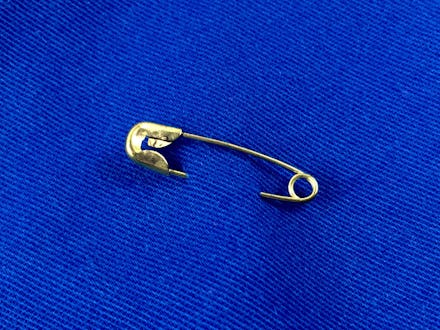People are wearing safety pins after Donald Trump's election. Here's the reason why.

Donald Trump's presidential win has left millions of Americans living with a frightening sense of uncertainty and fear. There's good reason: Just hours after Trump's victory, numerous reports of politically and racially charged abuse, threats and violence began popping up all over the United States.
Now, in response to an alleged uptick in hate crimes, people across the United States are showing their solidarity to communities vulnerable to racist and bigoted attacks with one simple item: a safety pin.
This is the time, now more than ever, to show your solidarity with those in need.
In the San Francisco Bay Area's transit system, for example, a white woman started verbally abusing a fellow passenger for speaking Assyrian on the phone. She shouted at the woman of Middle Eastern descent and said Trump will have her deported.
In another unfortunate incident, a man who appeared to be a Trump supporter threw water at a woman's face and, assuming she was Mexican, said, "I can't wait until Trump asks us to rape your people and send you back over the biggest damn wall we're going to build. Go back to hell, wet back."
These two examples are just a glimpse of an exhaustive list of racist, homophobic and Islamophobic attacks happening around the country. They also reveal a need to develop an allyship with those vulnerable to these attacks.
Luckily, there's now a simple way to show your solidarity. Allison, an American living in England who declined to provide her last name to the Guardian, according to Vox, came up with a very basic idea to show support for minorities enduring an uptick in hate crimes in the aftermath of Brexit. The gesture was straightforward and easy: Put a safety pin on your clothes.
Now, in the aftermath of Trump's win on election night, Americans are putting the same concept into practice. Like many Brits did before, Americans and other people residing in the U.S. are sporting safety pins on social media to show their solidarity and to tell marginalized communities that they are not alone – that they, too, are welcome in this country.
The current racial and political climate may have left many people unsure of ways they can help. Wearing a safety pin is a small gesture, but it can send a positive message to those in need.